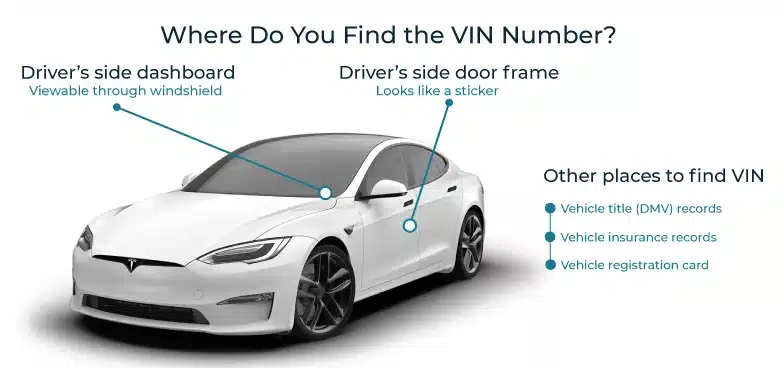Hyundai Recall Check

A Hyundai Recall Check is a service offered by Detailed Vehicle History that allows Hyundai owners or buyers to check if their vehicle has any outstanding open recalls or defects. This service helps ensure the safety and reliability of the vehicle and provides peace of mind to the owner or buyer.
What is a Hyundai Recall?
A Hyundai recall is a free service issued when defects pose safety risks, such as faulty parts or engine failures. These recalls help ensure your vehicle meets safety standards. Owners are notified by mail, but you can quickly verify online with your VIN or license plate. Use our recall check tool to see active recalls of your Hyundai.
Why You Should Check the Hyundai Recall History?
Running a Hyundai Recall Check is crucial for used car buyers, as it reveals any outstanding recalls or defects. Verify your Hyundai’s VIN to ensure safety, avoid costly repairs, and confirm any necessary fixes before purchasing.
1. Avoid Unsafe Hyundai Vehicles
A Hyundai recall is issued when a vehicle fails safety standards or has defects that pose risks. These issues can range from minor to severe and can potentially put the driver, passengers, and other motorists at risk.. Addressing recalls promptly ensures safety, prevents accidents, and provides free repairs.
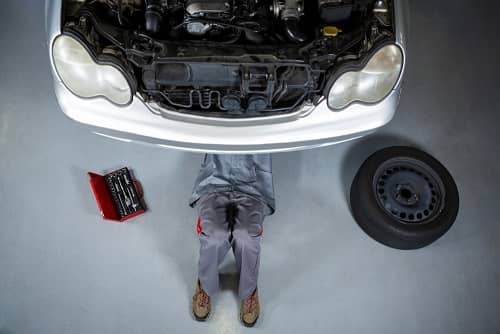

2. Compliance
Ensuring compliance with federal safety standards is crucial when buying a used Hyundai. Checking its recall history helps protect resale value, avoid legal issues, and ensure your vehicle is safe to drive.
3. Check Common Safety-Related Issues
Checking your Hyundai recall history helps uncover hidden safety issues and ensures peace of mind, like fire risk, failures in electric vehicles (EVs), and any other risks. Hidden defects may not show immediately, but can lead to danger if ignored. A Hyundai recall check keeps you safe, avoids potential risks, and ensures a safe, confident driving experience.

How to Run Hyundai Recalls
Get the Hyundai recalls report in under a minute by following these simple steps below.

Locate Your Hyundai VIN
You’ll need your Vehicle Identification Number (VIN) ready. On the driver’s side of the dashboard, visible through the windshield, and on the driver’s side door frame or jamb. The VIN is also printed on your vehicle registration and insurance documents. Our lookup service works on any type of Hyundai, classic or current.


Fill in the Form
Start your Hyundai recall check now by entering your VIN in the form above. No VIN available? Just enter your license plate number and we’ll generate your recall report instantly.


Receive Your Hyundai Recall Report
Wait for a few moments for the Hyundai recalls report to be generated. Once it’s finished, you can get the report on the recalls.
What Will You Get with a Hyundai Recall Check?
A Hyundai recall check shows detailed information about safety recalls affecting your vehicle. Each record outlines when the recall was announced, which component is impacted, and what action you should take. Such as:
- Date of recalls: Tells you when Hyundai or the National Highway Traffic Safety Administration (NHTSA) identified the safety issue, keeping you up-to-date on the latest recall status.
- Affected Component: This section specifies the part or system in your Hyundai vehicle that has the defect. Provides transparency so you can address the issue directly with a Hyundai dealer for the necessary repairs.
- Recall Remedy: Explains the repairs Hyundai offers at no cost, ensuring you know how to resolve the safety issue with your vehicle.
- Next step for the affected Hyundai: Confirm if your Hyundai is listed under the recall and schedule repairs. With a complete Vehicle Report, you’ll also see past recalls and repair status.
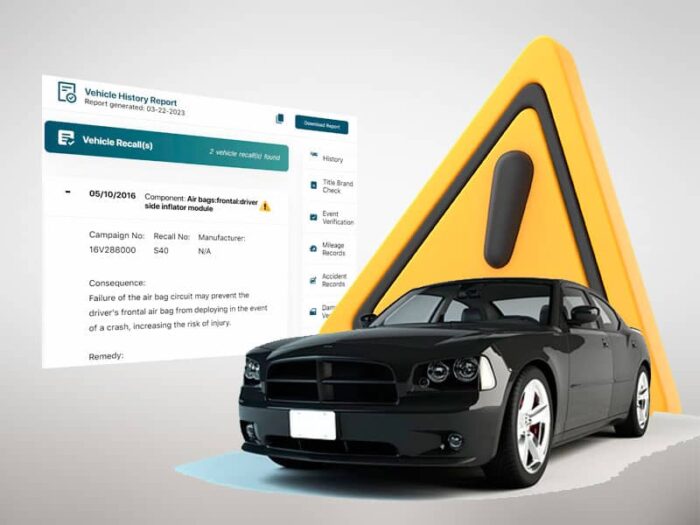
Sales Listing Details
Learn the price, location, and condition of your Hyundai during its sales listing. This helps you track its market journey and gain insights into its value and history.
Ownership History
Learn about the previous owners of your Hyundai, including purchase dates, locations, and how long they owned the vehicle. This gives you valuable insight into the vehicle’s history.
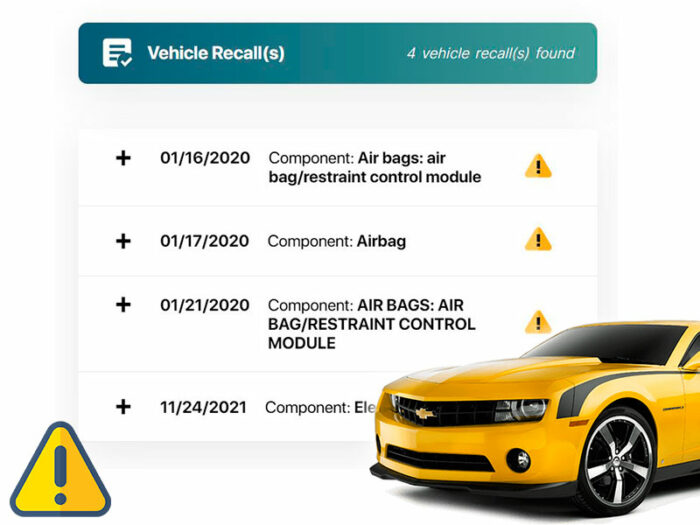
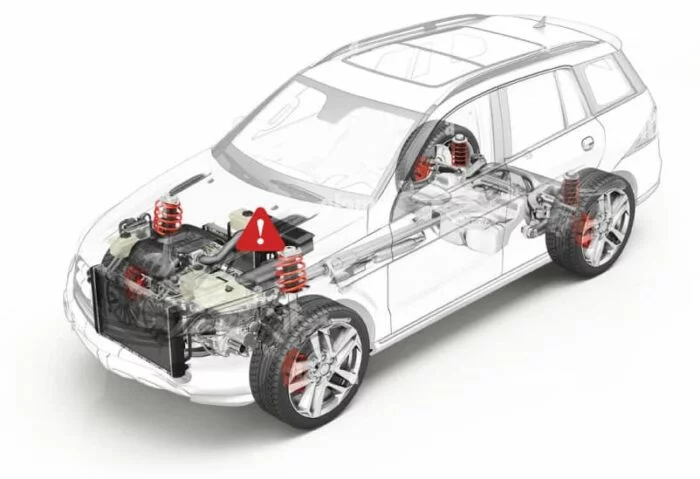
Theft Records
See if the Hyundai has been stolen in the past. Alongside the date the report was filed, the location, and more.
Service and Repair History
Check if the vehicle has been properly maintained and serviced in the past. See records of repairs to find out the vehicle’s true condition.


Accident Records
Check if your Hyundai has been involved in any accidents, including the date, location, and severity of the incident. This helps assess potential damage related to recalls and repairs.
Damage Verification
Check if your Hyundai has any records of fire, flood, or structural damage. This ensures your vehicle is free from past damage that could affect recall repairs.
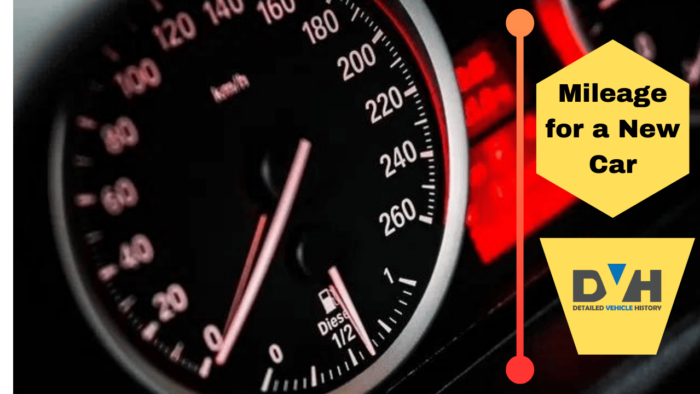
Common Issues Leading to Hyundai Recalls
Hyundai vehicles have faced several recalls due to safety and reliability concerns. Common issues include fire risk, failures in electric vehicles (EVs), and any other risk. Below are some of the causes behind the Hyundai recall notices.
Fire Risks and Electrical Shortages
Anti-lock Braking System (ABS) Failures
ABS module failures in various Hyundai and Genesis models, including some 2015-2016 Genesis, 2017-2020 Genesis G80, 2019-2021 Genesis G70, and numerous models from the 2012-2015 model years, such as the Accent, Elantra, and Sonata Hybrid, pose serious fire risks. These defects can cause electrical shorts, increasing the likelihood of engine fires, even when parked.
Fire Hazards
Hyundai has issued recalls due to serious fire risks, particularly from ABS module failures and leaking oil pipes. These defects can lead to electrical shorts, fires, and significant engine damage, posing major safety concerns.
Engine Failures and Power Loss
Faulty Piston Oil Rings
The 2019-2021 Hyundai Elantra, Kona, and Veloster with 2.0L Nu MPI engines were recalled due to improperly heat-treated piston oil rings that can cause engine knocking, increased oil consumption, and, in rare cases, fires. Affected owners can get a free engine replacement.
Fuel Pump Failures
Hyundai issued recalls for the U.S. and Canada, affecting 2019-2023 Genesis G70, 2019-2022 Veloster N, 2022-2023 Elantra N, and 2022-2023 Kona N models, due to faulty fuel pumps causing power loss. This issue could lead to engine stalling, risking safety on the road. Hyundai dealers will replace the faulty pumps.
Transmission Failures
Fail-Safe Mode Malfunction
A 2022 Hyundai recall was issued for vehicles such as the Santa Cruz and Sonata. The transmission oil pump malfunction caused power loss and stalling by triggering a “fail-safe” mode. Hyundai will replace faulty transmissions.
TCU Software Logic Issue
Hyundai’s 2024 recall targets Santa Fe vehicles with a faulty Transmission Control Unit (TCU) software logic. This issue may damage the dual-clutch transmission (DCT), leading to rollaway risk. Owners can receive free software updates or DCT replacements.
Other Notable Mechanical Issues
Rollaway Risk
In November 2024, Hyundai recalled around 42,000 2025 Tucson and Santa Cruz vehicles due to a wiring issue that may allow them to roll away while in Park. Affected owners should contact dealers for free repairs.
Rear View Camera Malfunction
Hyundai recalled over 226,000 vehicles, including 2021-2022 Elantra and Santa Fe models, due to faulty rearview cameras. The issue stems from weak solder joints that could cause the camera to malfunction, reducing visibility.
Loose Engine Bolts
A Hyundai recall for certain Tucson and Santa Fe vehicles addresses loose connecting rod bolts, which can cause engine knocking, oil leaks, and even fire risk. Hyundai will replace the engines for affected vehicles.
Integrated Charging Control Unit (ICCU) Faults
Hyundai has recalled over 145,000 electric vehicles due to faults in the Integrated Charging Control Unit (ICCU) that may prevent the 12-volt battery from charging, risking a loss of power. Affected owners can expect a free fix, including ICCU replacement and software updates.
Understanding the Hyundai Recall Process
The NHTSA begins the recall process by investigating reported issues. If a defect is found, the manufacturer must issue a recall. See the steps of their process below
1. Report the Problem
If you notice a potential safety-related defect with your Hyundai, file a complaint with NHTSA. Once submitted, your report is stored in the NHTSA database. Your complaint helps NHTSA determine if an investigation or recall is needed. The more reports submitted, the higher the chance of triggering an official investigation to address safety defects.
2. Investigation
Once a complaint is submitted, the NHTSA follows a multi-step process to determine whether a recall is necessary.
- Screening: The NHTSA screens complaints and manufacturer data to identify potential safety defects in Hyundai vehicles. This process helps determine if further investigation or a recall is necessary.
- Engineering Analysis (EA): In the EA phase, NHTSA reviews vehicle data, inspections, and surveys to determine if a Hyundai recall is needed. It helps decide whether to initiate a recall or close the case.
- Investigate the Issues: NHTSA reviews Hyundai-related complaints and data, followed by technical analysis. If a safety defect is confirmed, the process leads to a potential recall for safety.
- Recall Management: NHTSA ensures owners are notified and monitors repair completion rates.
3. Recalls
A safety recall means Hyundai must notify owners and correct any defects or non-compliance with safety regulations. Recalls ensure vehicles are safe to drive. Manufacturers are responsible for offering repairs, replacements, or refunds. Most recalls are voluntary, promoting safety.
How Hyundai Vehicle Recalls Are Handled
When a safety issue occurs in a Ford, three key groups are involved in the recall process. They work together to detect defects, notify drivers, and ensure repairs are completed to keep vehicles safe.
Manufacturer’s Role
Hyundai plays a central role in recalls, starting with identifying defects and notifying NHTSA. The manufacturer must inform owners, offer free repairs, and provide timely updates, ensuring compliance with safety regulations.
NHTSA’s Role
The NHTSA’s role in Hyundai recalls includes investigating safety defects, ensuring manufacturers comply, and enforcing recalls when necessary. The agency works to ensure that Hyundai provides timely remedies, such as repairs or replacements, for affected vehicles.
Your Role as the Vehicle Owner
As a Hyundai owner, it’s essential to stay informed about recalls. Check your vehicle’s recall status using your VIN or license plate. If affected, confirm and schedule the repair to a Hyundai dealership for free repairs, ensuring safety and vehicle longevity.
Get the Hyundai Window Sticker by VIN
Discover everything you need to know about your Hyundai with a window sticker by VIN. View the car’s original specifications, options, colors, and factory-installed features like safety equipment.
With this detailed sticker, you can confirm the vehicle’s authenticity, ensure it matches the seller’s description, and uncover essential details that can affect its value. Secure your investment and ensure peace of mind knowing your Hyundai’s true history.
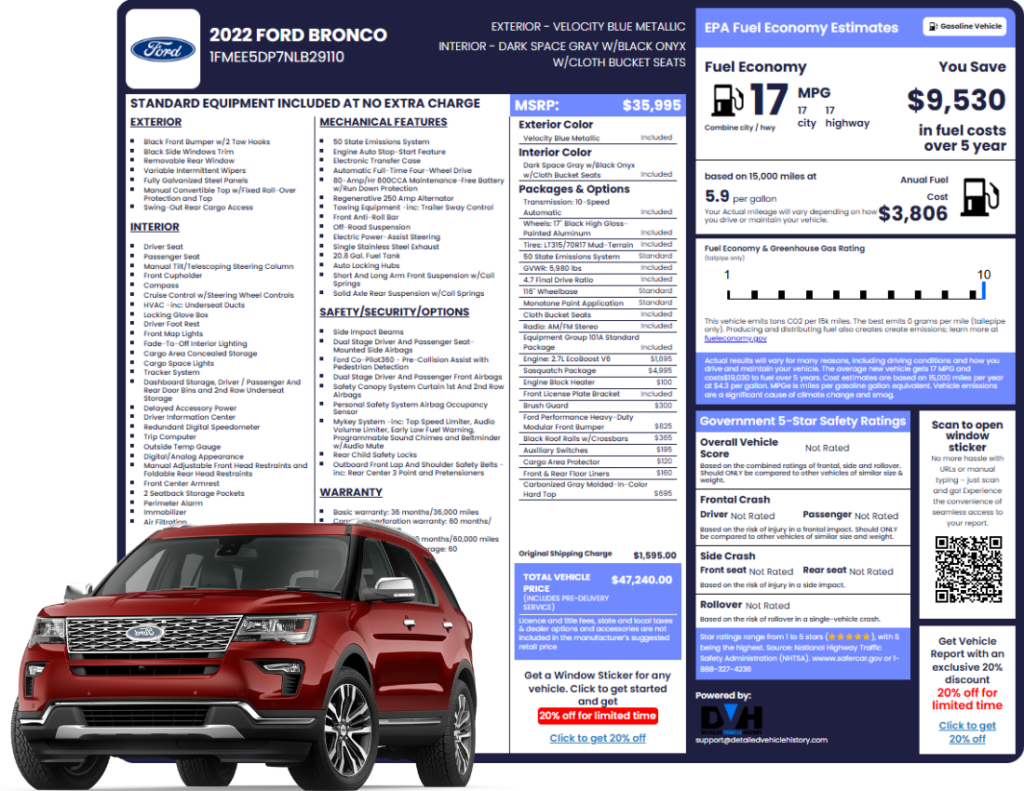
Why Use Detailed Vehicle History to Check Hyundai Recall?
A Hyundai is more than just a vehicle; it’s part of your everyday life. Our Hyundai vehicle history reports provide you with more than simple recall data. By entering your VIN or license plate, you’ll uncover complete specifications, title checks, mileage records, accident history, and even auction photos (if any).
We ensure you have complete information, so you can make safer, smarter ownership decisions. Start your Hyundai recall check today with Detailed Vehicle History and get the full picture.
Recall Check For Others Manufacturers
FAQ about Hyundai Recall Check
Q. Which Hyundai models are recalled?
Hyundai has issued recalls for various models, including the Elantra, Kona, Sonata, Tucson, Santa Fe, Ioniq 5 and 6, Genesis, Palisade, and Santa Cruz. These recalls address issues such as potential fire risks and transmission defects. To determine if your vehicle is affected, check your Hyundai recall by entering your VIN or license plate in the Hyundai Recall Check Lookup by Detailed Vehicle History
Q. How do I check if my Hyundai has had a recall?
To check if your Hyundai has had a recall, simply enter your VIN or license plate number in our Hyundai Recall Lookup Tool. This service provides immediate access to any safety recalls associated with your vehicle. It’s quick, easy, and vital to ensure your Hyundai is safe and up to date.
Q. Does Hyundai cover recalls?
Yes. Hyundai covers the cost of repairs for its vehicles’ safety recalls free of charge to the customer. Just take your vehicle to an authorized Hyundai dealership for repairs. If you’ve already paid for a recall-related repair, you may be eligible for reimbursement for recall-related repairs.

